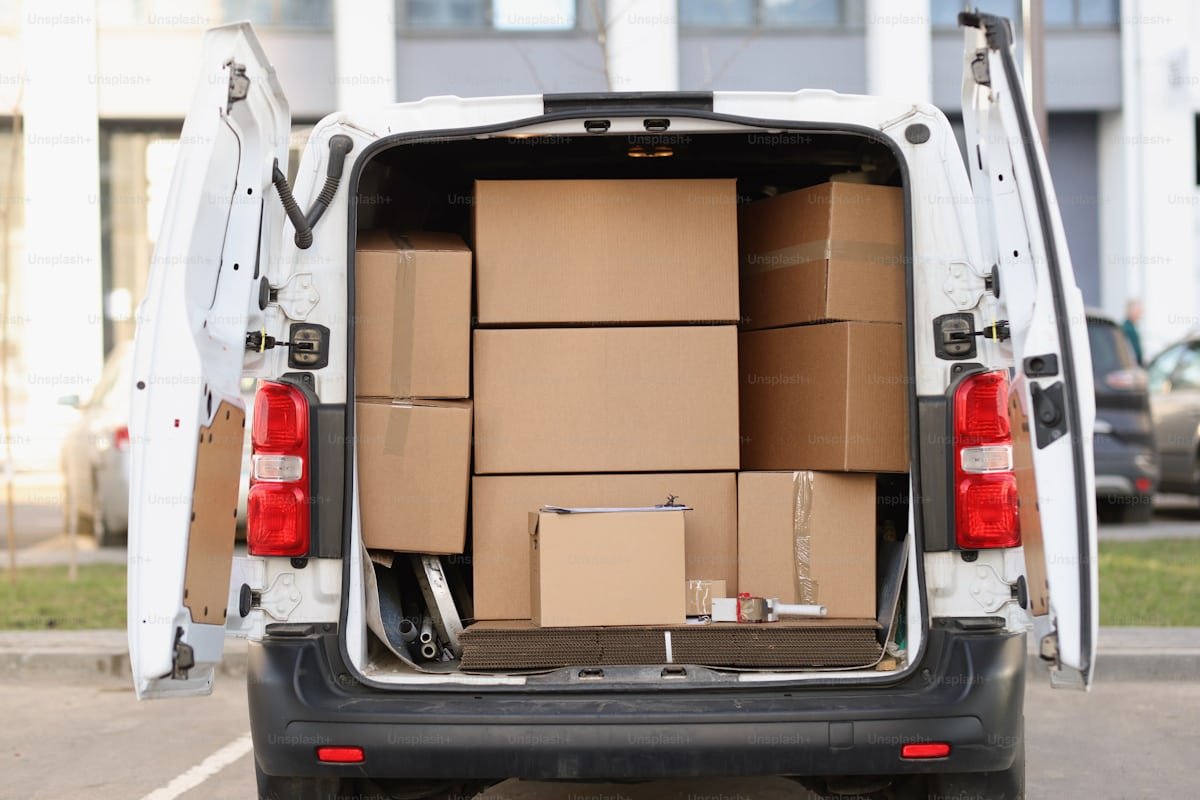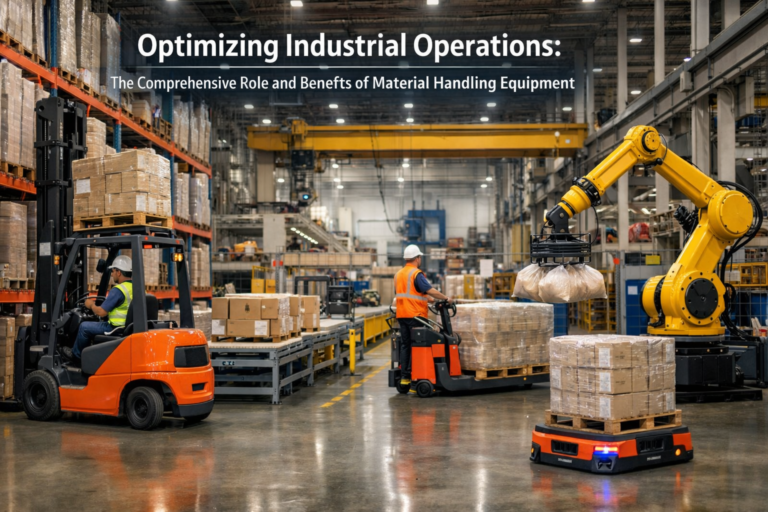Why Car Enthusiasts Are Ditching Traditional Couriers for Specialised Parts Delivery

Anyone who’s spent time rebuilding a classic car or modifying their daily driver knows the drill. You find the perfect part after weeks of searching, pay good money for it, arrange delivery through whatever courier the seller uses, then spend the next week refreshing tracking pages and hoping it actually arrives in one piece.
More often than you’d like, it doesn’t. Engine components that need precision handling get chucked around like parcels. Rare panels for vintage cars arrive with fresh dents added in transit. Glass parts turn up as expensive jigsaw puzzles. The seller shrugs, the courier company blames everyone except themselves, and you’re back to square one looking for replacement parts that might not exist.
There’s a reason car enthusiasts are increasingly avoiding traditional courier services for anything mechanical. The horror stories pile up fast once you start asking around.
When Generic Delivery Services Meet Specialist Parts
Standard courier companies treat a refurbished gearbox the same way they’d treat a box of books. They’ve got drivers doing 40 drops a day with no mechanical knowledge, no understanding of why certain items need careful handling, no appreciation for what these parts actually cost or how difficult they are to source.
The expensive BMW differential you’ve been hunting for months gets loaded onto a van between someone’s IKEA delivery and a pallet of tile adhesive. The driver has no idea it needs to stay upright, that the packaging isn’t designed for rough handling, that the whole thing’s probably irreplaceable if it gets damaged. They just know it’s item 23 on today’s route and they’re already running behind.
Insurance becomes a joke when parts are genuinely rare. Sure, they might refund you the £400 you paid for that period-correct carburettor. What they won’t do is find you another one, because there probably isn’t another one available in the UK right now. The financial value gets covered but the actual problem – needing that specific part to finish your restoration – remains unsolved.
The Real Costs Beyond the Delivery Quote
Project delays are what really hurt. You’ve cleared the weekend to fit your new turbo setup, bought all the ancillary parts and consumables, arranged for a mate with the right tools to come help. Then the courier fails to deliver because the driver “couldn’t find the address” despite your house having a massive number on the door. Next delivery slot available? Three days from now. Your weekend’s wasted, your friend’s time is wasted, and you’re paying storage fees if the part’s being held at a depot somewhere.
Parts sitting in courier depots aren’t in climate-controlled storage with mechanical expertise nearby. They’re in whatever warehouse space the company’s using this month, probably getting moved around by forklift drivers who don’t know a crankshaft from a crowbar. Every day your part sits there is another opportunity for damage, loss, or someone deciding it’s taking up too much space and needs moving to a different depot.
Return shipping for damaged items costs you time and usually money. Even when the courier accepts liability, getting them to actually collect the damaged part, process the claim, and issue a refund takes weeks. Meanwhile you still need the part, so you’re either waiting or buying a replacement and hoping the first claim eventually pays out.
What Car People Actually Need From Delivery
Knowledge matters. When you’re shipping a cylinder head or a set of dampers, having a driver who understands what they’re carrying makes a difference. They know why orientation matters, why certain parts need protecting from weather, why that apparently small item is actually worth more than everything else they’re delivering that day combined.
Flexibility around collection and delivery times becomes crucial when you’re dealing with specialists. The machine shop doing your engine rebuild isn’t open 9-5 Monday to Friday. The breaker’s yard where you found those perfect door cards closes at 1pm on Saturdays. Standard courier time windows don’t work with how the car parts world actually operates.
Communication that doesn’t go through three layers of customer service saves everyone hassle. Being able to tell the driver “the part’s with Dave in the workshop round the back, he’s expecting you” works better than hoping a generic delivery note reaches the right person. If collection gets delayed because the seller’s still finishing the rebuild, sorting it out directly takes minutes instead of hours on hold.
Proper equipment for heavy items should be standard, not extra. Engines, gearboxes, subframes – these aren’t things you just chuck in the back of a van and hope for the best. They need securing properly, lifting equipment sometimes, definitely someone who knows what they’re doing. Using a specialist car parts courier service means getting drivers with the right gear and the experience to handle mechanical components safely.
The Marketplace Alternative That Actually Works
Courier marketplaces where drivers bid for individual jobs change the economics completely. Instead of being one small part of a massive logistics operation, your delivery is an individual job that someone’s specifically chosen to take on. They’ve looked at what’s being moved, decided they can do it properly, and quoted accordingly.
Drivers who specialise in car parts exist on these platforms. They’ve got the knowledge, the equipment, the contacts in the automotive world. They understand that “handle with care” on an engine block means something different to “handle with care” on a box of crockery. Their vans are set up for securing mechanical items properly, not just optimised for maximum parcel volume.
The rating system matters because reputation directly affects earnings. Do a bad job delivering someone’s rare BMW part, get bad reviews, earn less money going forward. Do good work, build a reputation with car people, get more jobs at better rates. The incentive structure encourages proper service rather than just speed.
Pricing is transparent and realistic. No hidden charges for items being “oversized” when the measurements were accurate all along. No surprise surcharges because the driver decided the part was heavier than expected even though you provided the weight. You get a quote for the whole job upfront, they do the job, that’s it.
What Changed and Why It Matters
The internet made finding parts easier but created new logistics problems. Before, you bought locally or accepted you weren’t getting that part. Now you can find anything anywhere in the country, but getting it from there to your garage reliably is its own challenge. Standard courier services weren’t built for this kind of specialised delivery, and they’re not adapting fast enough.
Car values rising means parts are worth more both financially and in terms of availability. That £200 part from ten years ago might be £600 now if you can even find one. The stakes are higher, which makes poor courier service more expensive when it goes wrong. People are less willing to gamble on generic delivery services when rare parts are involved.
The classic car scene growing brings more people who need reliable parts delivery. Younger enthusiasts getting into restoration don’t have established networks of local suppliers and specialist couriers their dad used for 30 years. They need modern solutions that work with how they find and buy parts, which is mostly online from sellers anywhere in the UK.
Making Better Decisions About Parts Delivery
Don’t just accept whatever courier the seller uses by default. If they’re offering standard parcel delivery for a £400 engine component, push back. Suggest alternatives, offer to arrange collection yourself, whatever it takes to avoid the obvious disaster waiting to happen.
Build relationships with drivers who know car parts. Once you find someone reliable who delivers properly, keep using them. They’ll remember you’re not another generic customer, they’ll know what you need, they’ll flag potential problems before they become actual problems.
Factor delivery quality into your buying decisions. The part that’s £50 cheaper but comes with sketchy delivery might end up costing you more overall when it arrives damaged and you’re dealing with returns, replacements, and project delays. Sometimes paying slightly more for a seller who uses proper couriers saves money and stress.
Get everything in writing – measurements, weight, condition, packaging quality. Photos before dispatch. Good documentation before the part leaves helps massively if damage claims become necessary. It also helps the courier know exactly what they’re dealing with.
The Reality Check
Standard courier services work fine for normal stuff. For car parts, especially anything rare, expensive, or precision-engineered, they’re increasingly inadequate. The systems designed for shifting massive volumes of parcels quickly don’t translate to handling mechanical components that need specialist knowledge and proper care.
Car enthusiasts are voting with their wallets and their reviews, moving away from generic delivery services toward specialists who actually understand what they’re carrying. Not because they enjoy spending more time arranging collection – though they don’t necessarily – but because the alternative of repeatedly dealing with damaged parts, failed deliveries, and useless customer service has become unacceptable.
The hobby’s expensive enough without adding unnecessary costs from poor delivery services. Finding reliable ways to get parts from sellers to workshops without damage or drama isn’t being fussy, it’s just being realistic about what these items are worth and how difficult they can be to replace.





